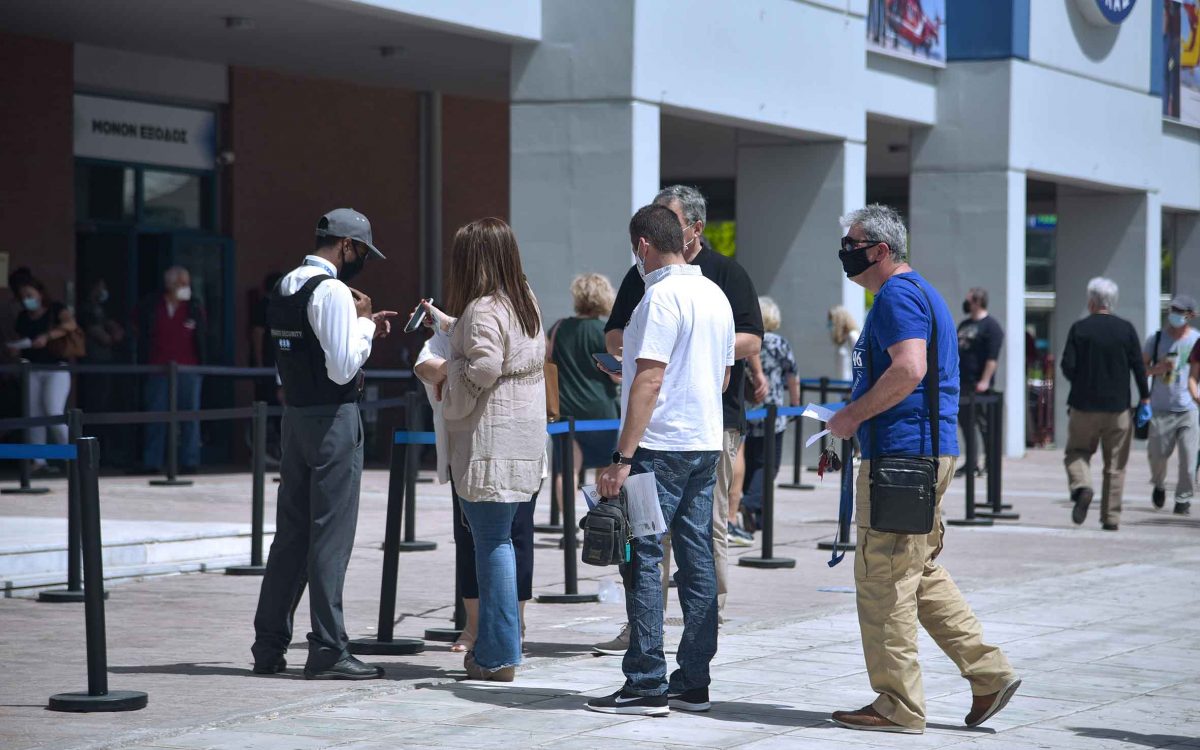Greece is grappling with the coronavirus pandemic as cases continue to rise at an alarming rate. In a desperate bid to reduce the number of infections, the government announced last week a series of new nationwide measures, requiring citizens to show proof of vaccination or a negative Covid test in order to access most businesses and public services.
The new measures, which came into force on Saturday, November 6, restrict access to banks, public services, retail shops, restaurants (including outdoor cafes), entertainment venues, and hair salons to those who are fully vaccinated, can show proof of recovery from Covid-19, or have a negative rapid antigen test. Unvaccinated citizens must therefore present evidence of a negative test result prior to entering the building.
Those vaccinated against the virus or have recovered from Covid-19 must also present the relevant documentation to attending staff or security employees.
Furthermore, unvaccinated workers must now test negative twice a week in order to get to their workplace.
Greece reported 7,335 new infections on Monday, November 8, the highest number since the start of the pandemic in the country in early April 2020. The government has already ruled out another lockdown, not wanting to forestall the economic recovery, but further restrictions on dining and entertainment may come into force later this month, including limiting restaurant opening hours and a ban on music at bars and eateries.
Since September, unvaccinated citizens have been required to present a negative rapid test result once a week to attend work. The 10 euro cost of each test has come at their own personal expense, placing an increased financial burden on many. As such, vaccination appointments have been on rise in the past two months. Now that two weekly rapid tests are required, many unvaccinated workers who are unable to work from home are now facing a stark choice.
The numbers of fully-vaccinated and those who have had Covid-19 and recovered are already contributing to the so-called wall of immunity in the face of the fourth wave of the virus.
According to the latest data, around 60% of the Greek population of 11 million people are fully vaccinated. Since the pandemic began last year, there have been 774,265 infections, and some 16,200 people have died.
Covid-19 sampling sites and diagnostic centers are located around Greece and do not require an appointment. Rapid test results are sent via email within 3 hours.
For further information, go here, or call 210 6966000 (Attica), or 231 0459660 (Thessaloniki).












